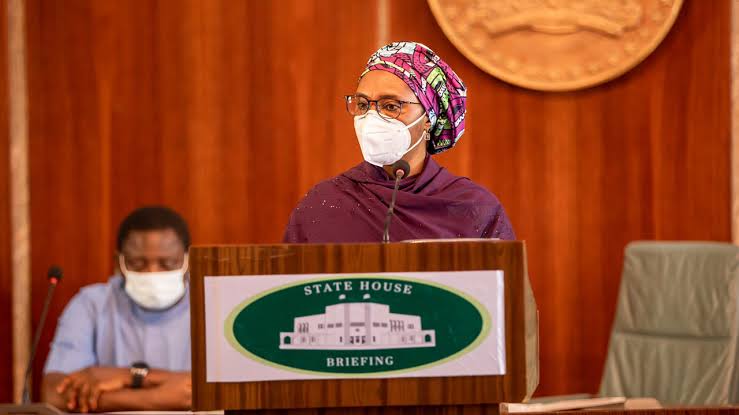
Increase of 260% to N21.87 trillion in bank borrowing from CBN
According to CBN financial statistics, Deposit Money Banks borrowed N21.87 trillion from the Central Bank of Nigeria in 2020 via the Standing Lending Facility window and Repurchase Lending platform.
When compared to the N5.744tn recorded through the same windows in 2022, this is a 260 percent increase. However, as compared to the N27.08 trillion the banks borrowed from the apex bank in 2021, it represents a 19.3% drop.
For banks and merchant banks, the apex bank offers two short-term lending options: the Standing Loans Facility (SLF) and Repurchase (Repo) lending.
While the CBN lends money to banks and merchant banks through the SLF at an interest rate that is 100 basis points higher than the Monetary Policy Rate (MPR), it also lends money to banks through a repo arrangement, which entails buying banks’ securities with the agreement to sell them back at a specific date and typically for a higher PRICE.
According to the CBN’s financial statistics, bank and merchant bank borrowing via the SLF decreased by 14.25% to N11.15 trillion in 2022 from N13.01 trillion in 2021.
According to the SLF breakdown by month, the DMBs and merchant banks borrowed N313.48bn from the CBN in January 2022. But in February, it fell to N186.48 billion.
According to financial information provided by the Apex Bank, SLF data in March was N377.13 billion and grew by 62.4% M-o-M to N612.43 billion in April 2022.
The CBN recorded N897.05bn in borrowing for May, and N1.93tn in borrowing for June, a huge rise.
However, the top bank’s financial figures indicated N1.46 trillion and N1.19 trillion, respectively, for July and August 2022.
The DMBs and merchant banks also took out loans of N1.56 trillion in November, N1.56 trillion in December 2022, N1.56 trillion in November, and N836.5 billion in September.
As a result, from the N14.07tn indicated by financial data in 2021, borrowing by DMBs and merchant banks via the CBN’s Repo decreased by 24 percent to N10.7tn in 2022.
The CBN’s figures for repo showed N968.8 billion in January but N480.35 billion in February. Nine Repo transactions totaling N343.48 billion were announced in March. But in April, it rose to N474.83 billion.
According to CBN statistics for other months, N1.197tn was borrowed in September, N1.197tn in October, N1.197tn in June, N1.65tn in June, N3.07tn in July, N1.62tn in August, and N870.32bn in May.
No Repo transactions were found in the financial data for November or December 2022.
Analysts have ascribed the fall to the banking system’s limited liquidity circumstances as the central bank boosts its monetary ratios to combat rising inflation.
Apart from the SLF and Repo, the CBN also takes bank deposits via its Standing Deposit Facility and pays an interest rate that is 700 basis points less than the MPR, which is now 16.5%.
According to data from The MINIECHAT, banks and merchant banks deposited N3.24 trillion with the CBN in 2022, up 6.65 percent from the N3.03 trillion deposited in 2021.
CBN behavior
For repeatedly failing to “meet minimal thresholds in important prudential and adequacy parameters, which has resulted in the bank’s constant presence at the CBN lending window,” the CBN had dismissed the board and management of the bankrupt Skye Bank in 2016.
Additionally, it was noted that “Skye Bank’s liquidity and non-performing loan ratios have been below and above the statutory criteria, respectively, for quite some time.”
Analysts respond.
Johnson Chukwu, an economist and the CEO of Cowry Asset Management Limited, responded to the CBN statistics by stating that increasing levels of commercial activity had led to an increase in bank borrowing from the CBN in 2021 and 2022. He acknowledged that it was difficult to determine whether the increased lending was a response to the liquidity problem.
The CBN policies in 2021 and 2022, in particular those that impacted the Cash Reserve Ratio and Loan to Deposit Ratio, he said, may have had an impact on bank operations, particularly with respect to using the central bank’s lending window.
The situation is not straightforward, said Chukwu. The banks’ choice to use the CBN lending window might have been influenced by a wide range of variables. At that time, the CBN established rules requiring a 30% Cash Reserve Ratio and a 75% Loan to Deposit Ratio.
The banks’ ongoing attendance at the CBN window to fulfill their short-term liquidity requirements would have been caused by the interaction of these policies and other circumstances.
fresh notes
The MINIECHAT has learned that Nigerians who reject or deface the new naira notes may be subject to a N50,000 fine or six months in jail.
Anyone who rejects, defaces, or counterfeits naira notes is guilty of a felony, according to the CBN Act of 2007, a copy of which our reporter was able to get.
A person who refuses to accept the naira as a form of payment is guilty of an offense and subject to a punishment of N50,000 or six months in jail, according to Section 20(5) of the CBN Act.
“(1)A person who tampers with a coin or note with or trades in issued by the bank is guilty of an offence and shall on notes and coins imprisonment for a period not less than six months or to a fine not less than N50,000 or to both such fine and imprisonment,” was added to Section 21.
“(2) A coin or note shall be deemed to have been tampered with if it has been impaired, diminished, or lightened other than through fair wear and tear, or has been defaced by stumping, engraving, mutilating, piercing, stapling, writing, tearing, soiling, squeezing, or any other form of deliberate and willful abuse, whether or not the coin or note has thereby been diminished or lightened.”
However, the punishment for counterfeiting is at least five years in jail.
Some bank clients reportedly refused to pick up the new notes for over-the-counter payments, according to a previous article by The MINIECHAT.
One of our journalists received confirmation of the scenario from a bank teller in Ogba, Lagos, who stated, “Some clients have been rejecting the new naira notes whenever we offer them; they claimed the new notes would not be recovered from them in the market; they prefer the old notes.”
According to news sources, Wahab Oseni, the head of the CBN’s Abeokuta branch, said that the rejection of the naira is a crime during a recent awareness campaign in that city.
Nigerians have lately been asked by the Nigerian Security Printing and Minting Plc to put an end to their experiments with the new naira.
To sensitize Nigerians who have voiced concerns about the quality of the notes, the minting company emphasized some of the new naira notes’ attributes.
The business underlined the need of educating Nigerians about the new naira in a statement issued under the managing director of NSPM, Ahmed Halilu.





Hmmm
Yeah
Good
This is good stuff
Same
Good
Nice one
Please should do something before someone collapse because of cashless
Hi
Super interesting
Omo hm
Nigeria and correction😂
Hmmm hmm
Good
See money
What is it
Gfetmmm
Good
Wow
Good
Yh
Nice
Hmmm
Ok
Hmmm. Even banks borrow money from the CBN.
Hmmm
Hmmm.
The new currency is not even properly in circulation
Okay
Ok
Most people in the villages are not even aware yet.
Ahh
Okay
Ok
Hmmmm
Hmmm
Okay
Nawa oooo
Bad people
Good
Hmmm
Hmmm
Okay
The new currency is not even circulating
Ok
Wow
Great
Hmnn
Good
Nawa ohhh
Good
Okay
Good
It is well with us in this country
Good update
Great
Nice
Hmm
Cool
Ok
Okay
Not to bad
Hmmmm
Good
Good
Nice
Awesome
Great
Good
Everyday
Continue
This not good at all.
Good
So Banks also borrow
Wow
Option
Money borrow money
Make dem continue
Lol money wey we never even know where e go
Bank borrowing
Okay
Great
Hmm okay
Wow
Good
Good
Fine
OK
Oh no
Okay
Good
Done
What do you have to say
Football game
Na wa o
How much
What are they using it for
Can you imagine
Hmmm, so now bank borrow money from CBN
Nigeria my country
Cool
Ok
Okay
Wow
Okay
Sad
Hmmm hmm
Hmm
Okay
Alright
Okay